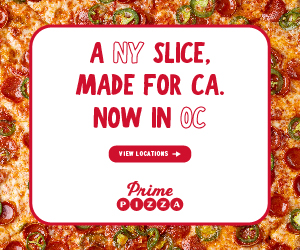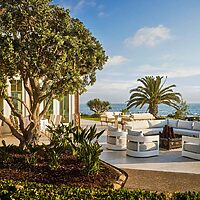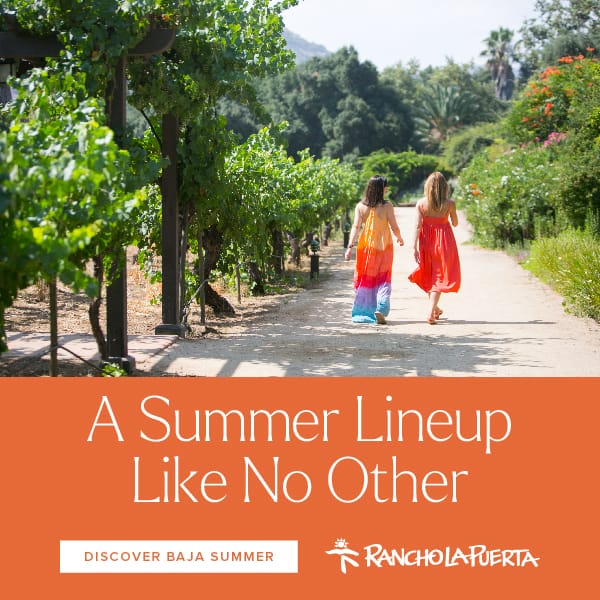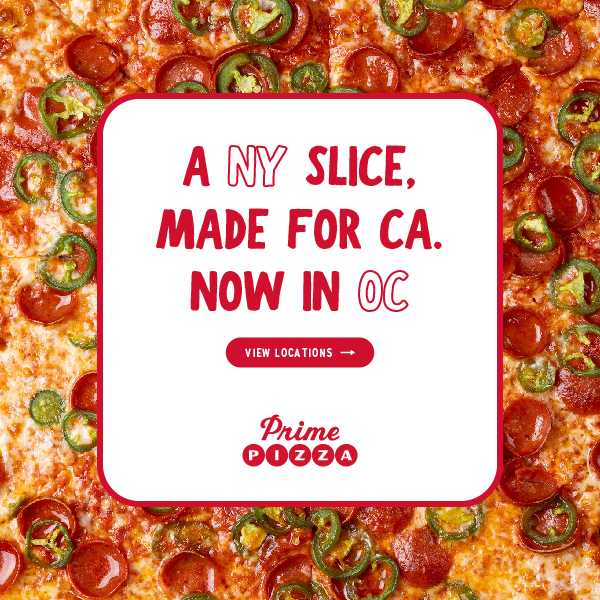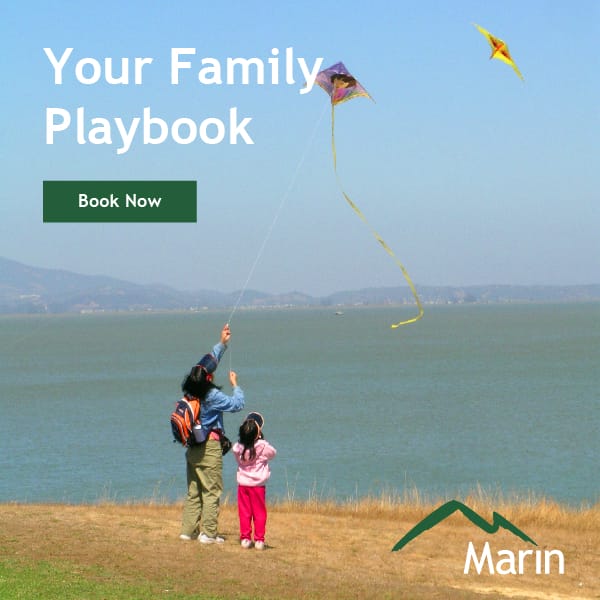Chef Patrick Glennon Talks His Fighting Past and Today’s Fishing World
After listening to Chef Patrick Glennon for about a minute, I sensed something elusive, something you don’t find in many people. He had just come from a sit down with a homeless man where he asked him how he would turn his life around and served him something to eat. Chef Paddy has a witty sense of humor that made me chuckle and his bravado peaked when he spoke passionately about sustainability and local sourcing.
A friend to many, a paragon to most, Chef Paddy is more than what’s seen on shows like Ready… Set… Cook!, Cutthroat Kitchen, Caesar’s 24/7 and Iron Chef. His success story began when he tucked $80 in his back pocket, along with a one-way ticket to France and a French address scribbled on the back of a matchbook. He spent years boxing professionally, using the cash from his winnings to finance his culinary training. He was trained in French techniques by the likes of Alain Ducasse in Juan-les-Pins, France; Juan Mari Arzac in San Sebastian, Spain; Christian Plumail in Juan-les-Pins, France; Bruno Cirino in St Jean De Luz, France; and Jacques Maximin in Nice, France.
But Patrick’s love for fish manifested long before venturing to France, and his valor and unwavering faith arrived effortlessly; never coming in tiny doses, but giant leaps.
Q: What does sustainable food mean to you? Why is it so important to you?
Patrick Glennon: Sustainable food to me is an overused term. It is defined by too many people, which often confuses the consumer who is trying to make better choices. I like to use the term, “consciously-sourced, ” because the word “sustainable, ” in the sense of preserving for future generations, does not take fair wage, fair living conditions and safe working conditions into consideration. Consciously sourcing takes sustainable initiatives to the root of where the food is from, whether that be fish, produce or meats, and follows that food through the production process. Consciously sourcing is taking that loose term “sustainable” to its absolute best possible solutions for humanity and the perpetuation of our planet and its remaining resources. I have seen many famous chefs tout their “sustainable fish” only to look at all the jet fuel spent to make the menu (often involving more than 12 jetliners on a daily basis).
Q: Where did you grow up? When you were younger, what did you always want to be when you grew up?
PG: I grew up mostly in Connecticut, in a small mill town called Vernon. I used to work at a dairy bar, where we’d make ice cream from scratch; and I became a grill cook there. Even in college, I was flipping burgers on the weekend and the owner pushed me towards restaurant management studies, and then I was accepted to Johnson and Wales Culinary program in Providence, Rhode Island.
Then, I got bit by the creativity bug while looking at an issue of National Geographic; I saw pictures of Rio de Janeiro, Monte Carlo and Paris and I told my mom that I wanted to go live in those places. I followed my dreams to get there, and I cooked in all of them.
Q: How did you go from being a professional fighter to fisherman to top chef?
PG: I was always a cook first and foremost. In learning to be a cook in Cape Cod, I worked as a deckhand on trawlers for extra cash. I also worked unloading, packing and gutting fish on a cash per diem basis at MacMillan Pier. This was a great experience that taught me to love and cherish the hard work that goes into what I do now as a living. Dancing and fighting were both great fun for a young lad, but both were forms of making some spending cash while I was making close to minimum wage, or no wage at times, literally living in the attic or storage closets of restaurants to learn my craft. Dancing and fighting were for survival and food. In the prize fights, I knew that if I did not advance in a tournament, I would go hungry.
At times, I survived on cans of tuna. During my time in Europe, I worked in some of the top restaurants and chefs of that era, and they got a lot for what they paid for. My goal was to always outwork the French, Spanish, Irish, Italian and Basque workers. I felt I was representing my country abroad in those kitchens. Being an American overseas, holding down Chef de Partie positions, I had to out-perform everyone.
They thought they were the better cooks and I’d be damned if I was not going to prove them wrong.
Q: You trained under Alain Ducasse, Jacques Maximin, Christian Plumail and Bruno Cirino in France. How has your experience with them propelled you to where you are now?
PG: France opened my eyes to what food is at a high level and all that it can be. In the European small farm system, I saw right away how much better and nutritious everything was and how well people ate and appreciated the simplicity of really good food. It opened my eyes to all that could be—with the culinary team, products, farmers, fishermen and hunters working at the highest level of intensity one can achieve in food.
It’s been a dream I chased when I came back, trying to set the bar in a place that, at first, was not ready for that precision of the craft.

Q: You are the founder of Culinary Liberation Front. Tell us about your vision and mission as advocates for all local fishermen, farmers and ranchers in raising awareness for nutritional education and food sourcing.
PG: We merged with the Ecology Center in San Juan Capistrano. Since then we’ve written up a working document called The Chefs Accord. This doesn’t mean that chefs have to be 100 percent “sustainable, ” green or perfect. We will move forward and help them reduce the use of caustic cleaning chemicals in their restaurants. We’ll guide them to use less electricity and water, making their operations more sustainable every day. We work with local farmers and fishermen and teach restaurants how to source directly from them.
This means skipping the flashy salesperson with unknown goods and choosing local, trusted partners instead.
Take a Caesar salad, for example—it’s made thousands of times each day in many restaurants. Now trace the ingredients: GMO monoculture lettuce from South America, grown with banned chemicals, fills each plate. The olive oil is imported, as is the cheese and anchovies from non-certified fisheries far away. That single salad racks up over 3,500 carbon footprint miles before it even reaches your table.
Q: Tell us about a time in your life that highlights your passion for seafood and sustainable food.
PG: I think the best advice was from Rick Warren, the pastor from Saddleback Church. He told us, “The only way you can serve God is by serving other people. ” And we’re not here to serve ourselves; we’re here to serve others. We’re only here for a short time, getting ready for eternity. We should be thinking about others.
I look at some of the challenges I have ahead of me, but I hope that I will change the way people will look at fish in America.
Q: A favorite seafood restaurant?
PG: Fishing with Dynamite in Los Angeles. Connie & Ted’s definitely pushes the ticket; also Waterman’s Harbor in Dana Point and Ironsides in Little Italy, San Diego. And I love the fish shacks in Morro Bay. The guys there buy right off the fleet offer the real deal.
Q: What has been your biggest challenge in life and your biggest achievement?
PG: Surviving alcoholism. That really sidetracked my life and my career. I had to recreate myself. Like, that’s how I will get back into the fish industry. I thought it was a place I would get sober. I was offered a job by my best friend Phil Levy; at the time, I could not stay sober in a kitchen past 8 a.m. in the morning. It was bad. He’s a very famous fishmonger in LA who’s now part of Santa Monica Seafood. So he put out his hand and said, “I need you to run my company at night, ” and I did. It took a couple more years on top of that to get sober and that’s how I went back into the fish industry. I cheated death by getting with God and slinging fish all night.
My biggest achievements are my six children. They’re all amazing. Being present and a positive part of their life and being a good role model for them is my biggest achievement. Chef Patrick Glennon
Q: What are some things we can find you doing on your downtime?
PG: I love to paddle surf and fish from a kayak. I enjoy fishing with my kids and hooking up their line. I love to coach soccer and I still train and fight. Normally I spend four to five days a week training with my boys at 5 a.m.
Q: What is your next adventure as a chef and leading activist?
PG: We are working on a documentary film to chronicle the plight of our U.S. fishing fleet that works under great quota and gear management, but are not supported by both the American consumer, or chefs in general, who spend on cheaper imported fish over what we catch here in our U.S.—waters under the highest level of sustainable initiatives on the planet. I am most excited for the Community Table in March that will feature myself with my fishermen friends from the Newport Dory Fleet. We will be bringing the guest outside of their comfort zones using all parts of the fish!
Credentials
Vice President of Business Development for Foodservice, Santa Monica Seafood.
Ringleader
Chef Paddy survived on prize money from fighting when he first started out.
Soccer Dad Chef Patrick Glennon
Chef ‘Paddy’ recently sold his sausage company of 10 years, Europa Specialty Sausage, and, with all this newfound free time, is looking forward to coaching his sons in soccer.
Chasing Dreams
When Chef Patrick Glennon was in college, he studied abroad in Ireland. Learning abroad at 17 years old eliminated his fear of traveling and not speaking the native language. He continued on to experience other countries like Brazil and Spain. “If you want to eat, you’re going to learn the language quick. Starvation cures that quickly, ” he says.
Written By: Rina Magsombol Chef Patrick Glennon.
Photographed By: Jack Lungu
When it comes to either a boastful laugh or an awkward chuckle, Rina is the girl who can get that out of you, depending on her tendencies for the day and how well you are receptive to lousy jokes. She has been writing for many years, boldly manifesting from undisclosed, cheesy sixth grade poetry about her innumerable eye candies until now, developing into a well-rounded author, contributing to different websites and publications. She is a Journalism graduate from Cal State University of Long Beach and has picked up several freelancing opportunities over the years as a Journalist for local newspapers. Currently, Rina is a contributing writer for local and national viral websites, and a content writer for a company in Orange County. When Rina isn't writing, she is wallowing in quiet moments at home, staying active, and surprising people with how fiercely competitive she gets at chess. This starts to peek through when she starts calling you a “Cheater" and grudgingly knocking down your pawns and bishops.
- Rina Magsombol










